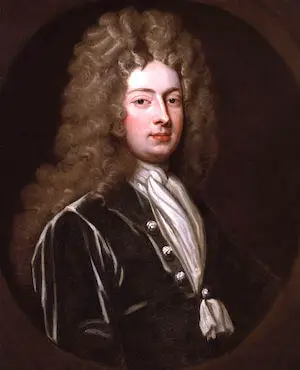Literal meaning. That literal meaning is open to misinterpretation as this phrase is frequently written as ‘music has charms to soothe the savage beast’.
Music has charms to soothe the savage breast
What's the meaning of the phrase 'Music has charms to soothe the savage breast'?
What's the origin of the phrase 'Music has charms to soothe the savage breast'?
The phrase ‘music has charms to sooth a savage breast’ sounds Shakespearian but in fact comes to us from The Mourning Bride, a poem by William Congreve, 1697:
Musick has Charms to sooth a savage Breast,
To soften Rocks, or bend a knotted Oak.
However, that isn’t the end of the story as the commonly circulated ‘music has charms to soothe a savage beast’ can’t be said to be entirely incorrect. Many years before Congreve published his poem, the Latin epic poem Pharsalia, which was written by the Roman poet Lucan, contained lines which must have been Congreve’s source. The poem was Englished, that is, translated into English, by the English courtier Thomas May and published in several editions in the 1620s and 30s. It includes these lines:
…Whose charming voice and matchless musick mov’d
The savage beasts, the stones, and senseless trees,
So, in Congreve’s poem, music:
Soothes a savage breast, softens rocks and bends oak.
In May’s poem, music:
Moves savage beasts, stones and trees.
Too similar surely to be unconnected. If two people were to be asked to come up with three things that music affects the chances of both of them independently coming up with 1. savage beasts/breasts, 2. rocks and 3. trees must be microscopically small. Also, Congreve was a classical scholar and would certainly have been familiar with Lucan’s work in the original Latin and probably also with May’s English version, which was reprinted in several editions and also in a ‘Ladies Dictionary’ just three years before The Mourning Bride.
The question remains, why did Congreve alter ‘beast’ to ‘breast’. It may have been poetic license or it may have been that he muddled beast and breast, as many others have done since.
So, although it remains the case that the phrase as we know it came to us from Congreve and so his version, that is, the one using ‘breast’, is the correct authorised version, those who opt to use ‘beast’ have a pretty good comeback if they are told they are wrong.
[My thanks to Peter Lukacs, ElizabethanDrama.org, for pointing out the Pharsalia source.]
See also – hell has no fury like a woman scorned.
See also: the List of Proverbs.
Related phrases and meanings
Browse more Phrases
About the Author

Phrases & Meanings
A-Z
A B C D E F G H I J K L M N O P Q R S T UV W XYZ
Categories
American Animals Australian Bible Body Colour Conflict Death Devil Dogs Emotions Euphemism Family Fashion Food French Horses ‘Jack’ Luck Money Military Music Names Nature Nautical Numbers Politics Religion Shakespeare Stupidity Entertainment Weather Women Work
How did we do?
Have you spotted something that needs updated on this page? We review all feedback we receive to ensure that we provide the most accurate and up to date information on phrases.
